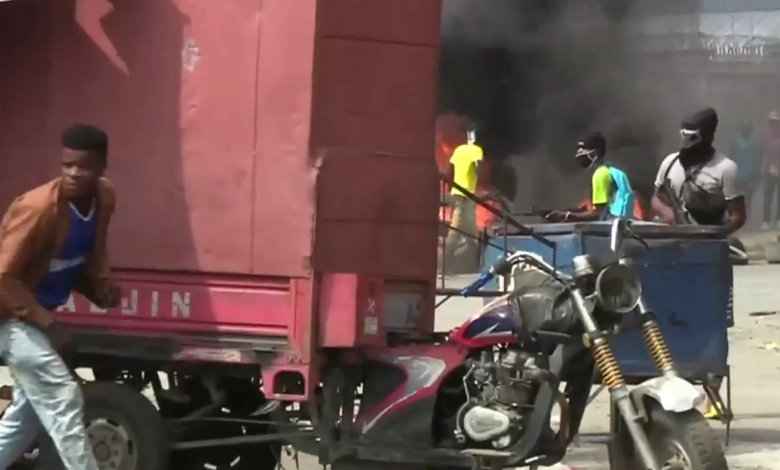Gang warfare causes Haitians to fear ‘danger at sea’ less than ‘danger at home,’ activist says

MIAMI – Every time desperate Haitian migrants in crowded wooden boats arrive in South Florida, Leonie M. Hermantin said she thinks about what they are trying to get away from.
Hermantin, a UC Berkeley lawyer, works for Sant La, a nonprofit organization that is also known as the Haitian Neighborhood Center. It has offices in North Miami and Homestead.
“These people are facing a perilous voyage because danger at sea is less than the danger at home,” Hermantin said.
The lack of security in Haiti deeply affects the work at Sant La, she said, adding that thousands of asylum seekers have contacted the organization for help. The crisis, she said, means the migrant community has more needs.
The United Nations reported the conflict between gangs and police for control of territory is holding residents hostage in ”a cycle of fear, stress, and despair” in areas of Port-au-Prince.
The Haitian government reported on Sunday that a former senator was set on fire inside a car on Saturday in Port-au-Prince near where President Jovenel Moïse was killed last year.
“Some of us can’t even travel to Port-au-Prince because we fear the violence,” Hermantin said adding that the conflict is “leaving a population vulnerable to random acts of violence.”
ESCAPING CRISIS
The violence in Port-au-Prince worsened after the assassination of President Jovenel Moïse last year and Prime Minister Ariel Henry took power.
Tired of the shootings, deaths, and disappearances, Natalie Aristel told CNN the most recent attack in her neighborhood forced her to sleep in a puddle because she is homeless.
“They burned my house and shot my husband seven times. I can’t even afford to go see him [in the hospital]. In this park, even if they brought some food, there’s never enough for everyone. The kids are dying,” Aristel said.
Human smugglers who are working in the shadows where despair meets hope regularly overload vessels. Those who can afford the attempt to escape face the risk of ending up dead at sea or jailed in the U.S.
CNN reported the island of La Gonave has turned into “a hub for human traffickers” who buy a wooden boat for the one-way voyage to the U.S. and need to fill it up to turn up a profit.
A former teacher told CNN he saved for a year to take the risk of “be eaten by a shark or make it to America.”
Combating human smuggling is a priority for U.S. Border Patrol Chief Agent Walter ‘’Neil’’ Slosar, who leads the Miami sector.
“The criminal organizations that overload these vessels sacrifice the safety of the migrants for the sake of profits,” Slosar said in April when he moved from the U.S-Mexico border.
HUMAN SMUGGLING
U.S. Border Patrol agents said 109 Haitian migrants, including women and children, got out of a wooden boat that ran aground on Monday off Marathon. The U.S. Coast Guard found 14 migrants inside the boat.
On Saturday, agents detained more than 300 Haitian migrants who arrived off Ocean Reef, a private club in North Key Largo, and 113 Haitian migrants in a vessel that ran aground off the coast of Key Largo.
The U.S. Coast Guard reported intercepting four times as many Haitian migrants this fiscal year compared to the last.
Some of the Haitian migrants are ending up in Cuba. Late last month, 141 Haitian migrants, including children and pregnant women, arrived at La Tatagua beach in Cuba.
Countless are dying. A few days earlier, the Coast Guard reported rescuing 68 Haitian migrants, including 25 women and two children, after five drowned near an uninhabited island west of Puerto Rico.
In May, a group of 842 Haitian migrants, including 70 children and 97 women, survived a nightmarish voyage in one vessel, but they ended up in Cuba, instead of the U.S. as they had hoped.
Joyce Paul, 19, was part of the group. He told The Associated Press he was with his wife, baby, and uncle and although the smugglers charged $4,000 per person, he said the captain left in a separate boat and took their cell phones.
“We were on Tortuga Island for two months waiting for the trip … 15 people threw themselves into the sea because they couldn’t stand hunger,” Paul said. “There was a herring for (each) 15 people and they gave us water.”




